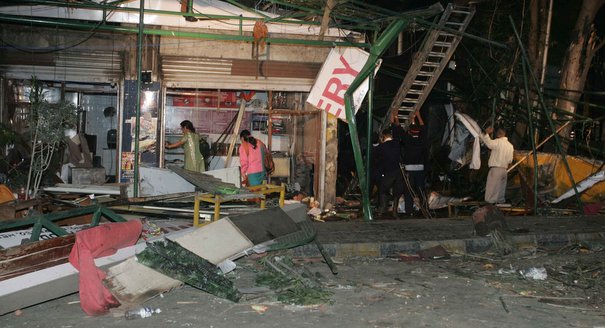The bomb blast in the Indian city of Pune and the media response show that there is still a lot of opposition in India to normalizing relations with Pakistan. But in the view of Carnegie Moscow Center expert Peter Topychkanov, the external situation leaves these opponents little chance of success.
“Just when talks were set to resume between New Delhi and Islamabad, a bomb blast in the western Indian town of Pune killed 9 people and injured 57. The time and place of the explosion were not chosen by chance. What is significant is not even so much that the chosen target was a cafe popular among foreigners, but that Pune is a city where political organizations based on religious and nationalist platforms are strong. Following the blast, these organizations called for an end to preparations for resuming Indian-Pakistani talks. As a result relations between the two south Asian countries ran a risk of deterioration. Thus the organizers of terrorist attacks in India and the leaders of religious and nationalist organizations played the role of “partners” in trying to prevent the normalization of Indian-Pakistani relations.
“Today, however, the conflicts between New Delhi and Islamabad have reached a point where they go beyond the regional scale. There are at least two reasons for this. First, both countries are relatively recent nuclear powers, and there are questions as to the reliability of their nuclear weapons control and command systems. Given the complete lack of information on these countries’ strategic forces, the possibility of a nuclear strike – if only an accidental one – cannot be ruled out. Second, any confrontation between India and Pakistan would lead to Pakistan becoming less active in backing international efforts to stabilize the situation in Afghanistan. For Pakistan, after all, India represents a much greater threat than Al Qaeda, the Taliban and so on. Of course, such a change in Pakistan’s policy would be unacceptable for the international community, above all for the U.S., all the more so now, when the International Security Assistance Force in Afghanistan, together with U.S. and Afghan troops, are carrying out a major military operation, Moshtarak, in Afghanistan.
“In this context, it is clear that the international community will put the full weight of its support behind normalization of Indian-Pakistani relations and will help proponents of this course in India and Pakistan to overcome the negative impact of the terrorist attack in Pune.”
